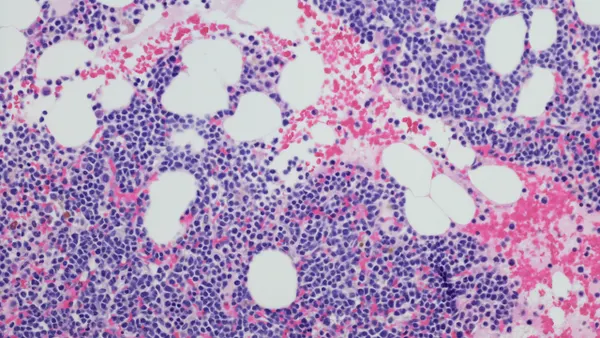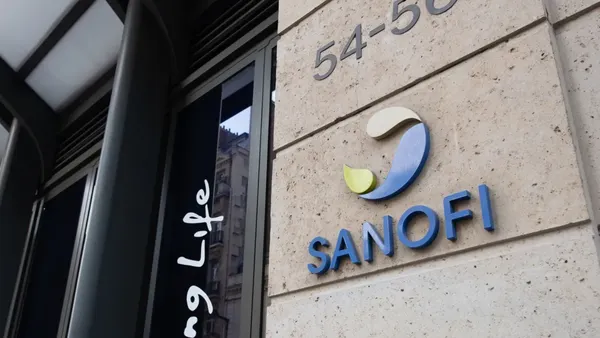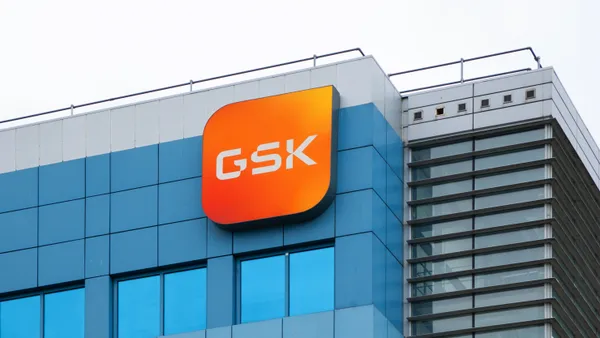Dive Brief:
- British pharma AstraZeneca plc on Nov. 19 announced new data for its cancer drug Tagrisso that could boost the treatment's profile for first-line treatment of advanced non-small cell lung cancer for patients with a mutation known as EGFR.
- In a data analysis of the Phase 3 FLAURA study, AstraZeneca found that people who had central nervous system (CNS) cancer metastases at baseline and were later treated with Tagrisso saw a higher response rate and lower risk of CNS progression than those given Tarceva or Iressa, two drugs considered to be standard of care.
- Tagrisso reduced the risk of CNS disease progression or death by about half, according to the subgroup analysis, and fewer Tagrisso-treated patients experienced disease progression for new CNS lesions. Severe adverse events were also less common.
Dive Insight:
AstraZeneca's product sales have been flagging, weighed down by patient expiries to top drugs like Crestor (rosuvastatin). CEO Pascal Soriot has expressed confidence the tide is turning, however, emphasizing the company's success with Tagrisso (osimertinib) and Lynparza (olaparib) in oncology.
While non-small lung cancer is a focus for many drugmakers, AstraZeneca has positioned Tagrisso for patients whose tumors express the EGFR mutation — roughly 10% to 15% of lung cancer patients in the U.S. and Europe.
Tagrisso alone has proved more effective than doublet chemotherapy in the second-line setting, and versus Tarceva (erlotinib) or Iressa (gefitinib) as a first-line treatment. Tagrisso's potential to improve clinical outcomes in CNS metastases, which are hard to treat, could help further differentiate the drug.
Tagrisso has been approved in more than 60 countries, including the U.S., EU, Japan and China, for patients with EGFR T790M mutation-positive advanced NSCLC, and studies are underway as an adjuvant therapy and in combination with other treatments.
While AstraZeneca has so far found success with Tagrisso in this slice of lung cancer patients, the company hit a major setback in immuno-oncology when its flagship PD-L1 inhibitor Imfinzi (durvalumab) failed to improve progression-free survival in the closely watched MYSTIC study.












